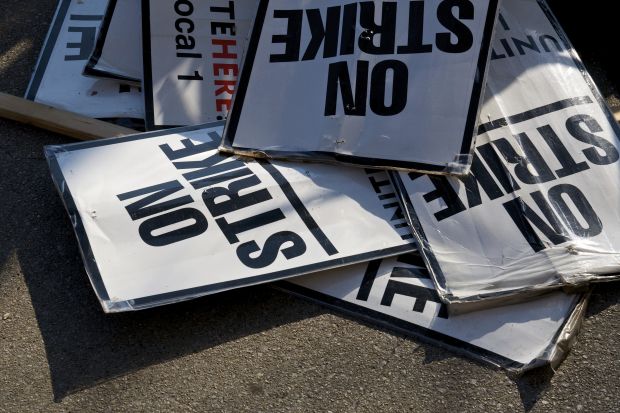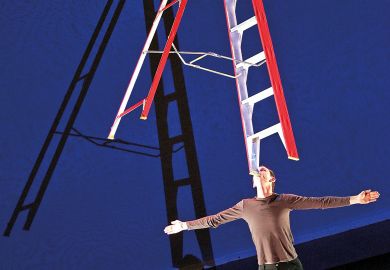New legislation to reform strike laws in the UK is likely to have a major impact on higher education pay disputes if passed in its proposed form.
Under the plans to “make strike laws fairer for working people” unveiled by the government on 15 July, strike ballots would require a minimum 50 per cent turnout, rather than a simple majority of those voting.
That higher bar for industrial action would have scuppered the last set of national walkouts held between October 2013 and February 2014 over a 1 per cent pay offer.
That series of one-day and two-hour stoppages went ahead on a turnout of 35 per cent, of whom 61.5 per cent voted in favour of strike action.
Even the 42 per cent turnout in a ballot of members at pre-1992 universities over changes to their pensions – described by the University and College Union as “very impressive” – would not reach the required threshold for action.
Low turnout is an issue often highlighted by Sally Hunt, general secretary of the UCU, who told May’s congress that the union needed to improve engagement with members.
But Hunt maintains that the issues around turnout are as much technical and procedural ones as they are about voter apathy.
As required by law, UCU ballots are conducted by post, with some votes conducted over the summer months when university staff are often away from campuses.
“If the government was serious about increasing democracy in union ballots, it would allow things such as electronic and workplace voting,” Hunt says.
“Instead, it is seeking to impose minimum turnout levels and victory margins that were not applied in the general election or the Scottish referendum,” she adds.
That may mean strikes becoming more localised, taking place solely at universities with more militant and engaged union memberships.
Other elements of the strike legislation will also prove unpopular with trade unions, particularly efforts to limit what ministers call the “intimidation of non-striking workers”.
I have covered numerous picket lines at universities while reporting for Times Higher Education, and this has never been much of a problem.
Non-striking academics or students entering buildings are, at most, urged by strikers not to break the picket line or handed a leaflet about why the action is taking place.
But plans laid out in the consultation state that a revised code may require unions to state how many people will be involved in a picket, whether they will be holding banners and whether they will be using social media on the day.
Such requirements may be seen as very heavy-handed by academics, with unions genuinely unable to say just how many staff – or supportive students – may turn up or tweet during the action.
Enforcing such draconian rules would surely provoke more bitterness and resentment among academics and would worsen industrial relations further still.
Register to continue
Why register?
- Registration is free and only takes a moment
- Once registered, you can read 3 articles a month
- Sign up for our newsletter
Subscribe
Or subscribe for unlimited access to:
- Unlimited access to news, views, insights & reviews
- Digital editions
- Digital access to THE’s university and college rankings analysis
Already registered or a current subscriber? Login




